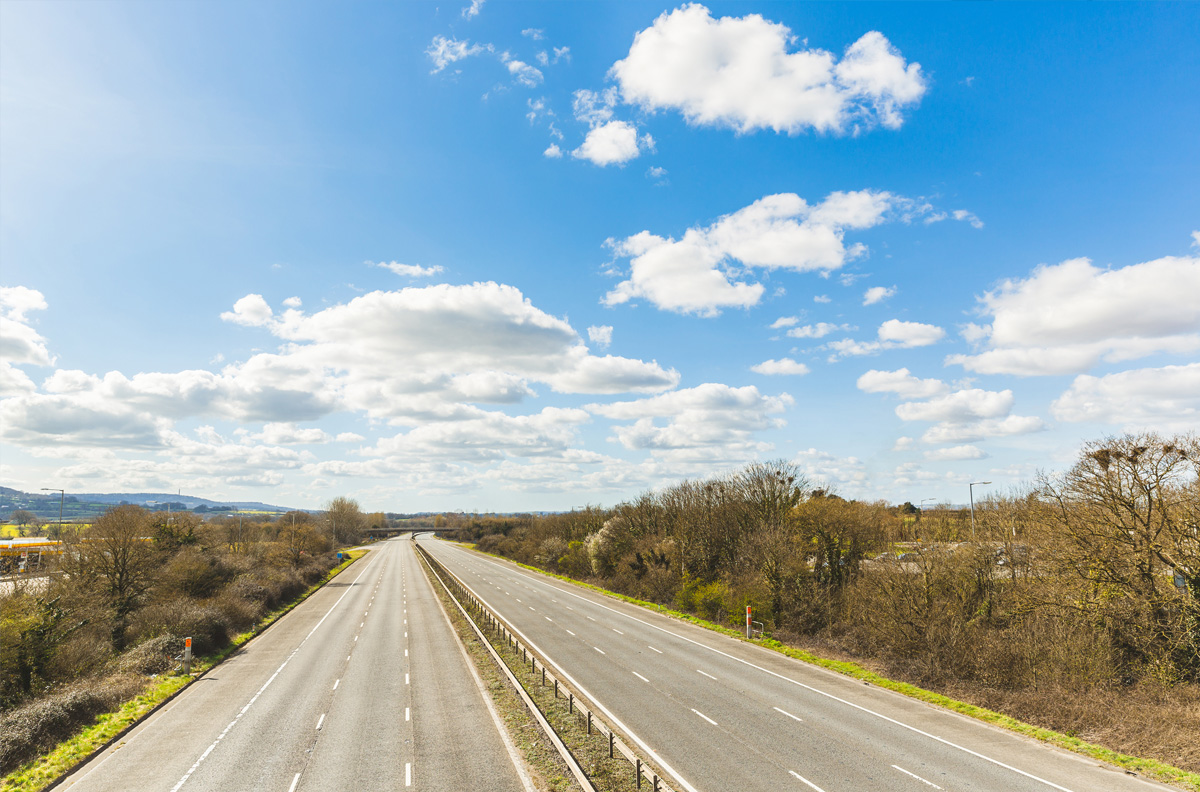S h a r e
From coronavirus to clean air – sustainability must be a key fleet policy


Posted by
Martin Brown
April 2020
Walking around the nearly deserted streets of my home city Glasgow – during my once a day choice of exercise – two things struck me: how silent were the streets; and how clean the air.
I know it’s a desperate time, but it’s important to look for positivity around us.
This lack of noise – you can hear the birds in the parks, for instance – and the better quality air are really important additions to our lives as we try to make sense of the coronavirus pandemic.
And why, I thought, can’t it always be like this?
I followed the COVID-19 outbreak in China and was surprised to see such a dramatic drop in pollution levels, particularly those of nitrogen dioxide. With little or no traffic, the cessation of its coal-fired industry and few flights over the country, the effect was dramatic. A story on the BBC’s website, using NASA imaging, illustrates what a demonstrable effect coronavirus had on pollution levels across China.
Turning closer to home, engineering consultancy Ricardo has analysed some of the figures for the UK during the coronavirus pandemic which show a dramatic decrease in nitrogen oxides particularly once lockdown took place. In Glasgow the reduction was 28%; in London’s Marylebone the reduction was even greater at 39%.
Post pandemic, commerce will return with the additional pollution that entails. But do we have to accept the same? Should we accept polluted air? Air that is so contaminated that it causes lung and heart disease and premature death.
It needn’t be like that.
It shouldn’t be like that if fleets start transitioning to electric zero-emission company cars and vans.
The taxation benefits for company car drivers are brilliant: zero per cent on the company car tax rates this tax year (2020/21) followed by 1% and then 2% increases.
There’s no VED, either. And while the Plug-in Car Grant has been reduced to £3000 with an exclusion for cars over £50,000 it remains a worthwhile inducement.
For vans – subject to suitability – there’s greatly reduced running costs and a Plug-in Car Grant that’s worth up to £8000.
So use this time during the coronavirus lockdown to reconsider your fleet policy. It’s time for a pivot – to cleaner cars and vans. To greater sustainability.
And then we can all breathe more easily.
You also might like…
If you liked this article then check out our posts about similar topics
We do the Salary Sacrifice thinking for Mortgage Brain
The people at Mortgage Brain spend all day working on mortgage technology to help intermediaries and lenders, so when th...
First Drive: New Tiggo 8 Is A Chery Worth Picking
Why it matters The Chery Tiggo 8 is one of the most talked-about new arrivals in the UK In just four months, the brand ...
When “Good Enough” Fleet Management Stops Being Good Enough
Every year, UK organisations talk about efficiency, governance and value for money Yet behind the board reports and b...
A New Year’s Resolution for Smarter Fleet Management
Every January, businesses everywhere make the same promises: cut costs, simplify operations, do more with less But if...
2025 Wrapped: My First Year as a Fleet Alliance Appointed Representative
As 2025 draws to a close, it feels like the right time to pause, take stock, and look back on my first year as an Appoin...
FRED 82: Turning a Compliance Challenge into a Fleet Opportunity
FRED 82 may look like just another accounting standard, but for organisations running sizeable vehicle fleets, it repres...
Budget 2025 – the key points for fleets and EV salary sacrifice drivers
The 2025 Budget confirms what many in the fleet and salary sacrifice world have been expecting for some time: as electri...
Best company cars to beat BIK in 2025/2026
Sales of electric cars to fleet and business customers continue to head the new car market in 2025 After four months,...
Ready to make the management of your fleet more efficient?
Request a call back
